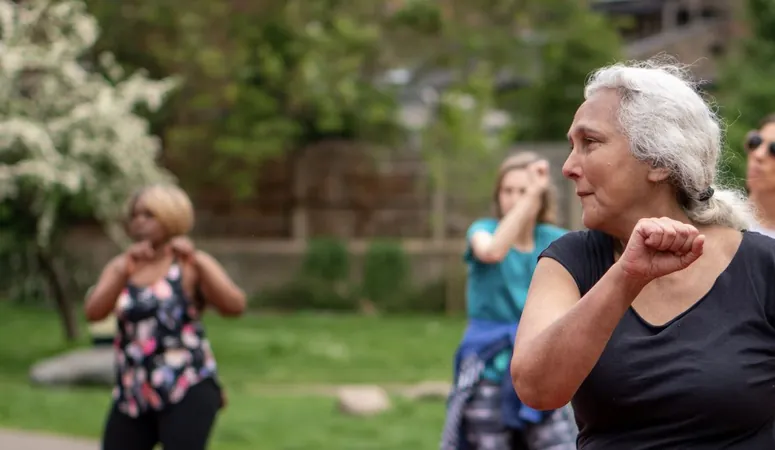
Boost Your Brainpower: The Surprising Link Between Positive Aging Attitudes and Mental Sharpness!
2024-11-10
Author: Siti
Boost Your Brainpower: The Surprising Link Between Positive Aging Attitudes and Mental Sharpness!
A groundbreaking study from researchers at Penn State reveals a powerful connection between how we perceive aging and our cognitive sharpness in later years. The research suggests that maintaining a positive attitude towards aging can significantly enhance mental faculties, while negative beliefs could lead to cognitive decline.
As we age, the stereotype of gray hair, wrinkles, and memory lapses looms large. However, these commonly held beliefs can drastically shape our cognitive experiences. The study highlights that individuals with a more optimistic outlook on aging report fewer cognitive challenges. They experience less trouble with concentration and are less likely to sense a decline in their mental capabilities over time.
Nikki Hill, an associate professor at Penn State and the leading author of the paper, emphasizes the importance of reshaping aging expectations. "If we can change how older adults view the aging process, we could promote healthier cognitive aging by providing accurate information," she explains. This mental shift may influence both perceptions and real cognitive health outcomes.
Prior studies show that expectations about aging can heavily impact overall health. Those who approach aging with pessimism are likely to experience more rapid declines both physically and cognitively. Conversely, a positive viewpoint correlates with proactive health behaviors, such as regular exercise and social engagement.
Hill's research delves deeper into these themes. She observes that many people internalize societal stereotypes about cognitive decline and aging, which can hinder their self-perception. This raises vital questions about the influence of expectations on cognitive evaluations and highlights the potential to intervene early and support optimal aging experiences.
For instance, individuals plagued by worry over cognitive decline—regardless of their actual cognitive health—may be more susceptible to future impairments. The early signs of conditions like Alzheimer’s can be subtle, making it all the more critical to understand how mindset plays a role in cognitive assessments.
To conduct their research, the team carried out an online survey targeting Americans aged 65 and older who live independently and have no diagnosed dementia. Out of 581 participants—51% of whom were women and 74% non-Hispanic white—questions focused on their health expectations as they age.
Participants rated statements regarding their aging beliefs on a four-point scale, such as “every year that people age, their energy levels go down a little more.” The survey also assessed their cognitive abilities in comparison to both the past week and the past decade.
The results were telling: those with a more positive perspective on aging reported less perceived cognitive decline over both timescales. In contrast, individuals who viewed aging negatively assessed their cognitive health much less favorably.
It’s evident that our attitudes toward physical, mental, and cognitive health collectively influence how we rate our cognitive functions. The takeaway? Positive aging perceptions lead to heightened self-assessment of cognitive abilities.
The researchers advocate for initiatives aimed at fostering realistic and positive aging expectations, potentially aiding individuals in better understanding their cognitive changes. "If we adjust aging beliefs to be more grounded in reality, we can help individuals clarify their cognitive experiences and address their needs for enhanced cognitive health," Hill stated.
The team is set to expand on this research, particularly focusing on how healthcare providers discuss cognitive health and aging with their patients.
In summation, the secret to maintaining sharp cognitive health as we age might lie in simply how we think about the aging process. Could a positive outlook on aging be the antidote to cognitive decline? Stay tuned as research continues to unfold!




 Brasil (PT)
Brasil (PT)
 Canada (EN)
Canada (EN)
 Chile (ES)
Chile (ES)
 España (ES)
España (ES)
 France (FR)
France (FR)
 Hong Kong (EN)
Hong Kong (EN)
 Italia (IT)
Italia (IT)
 日本 (JA)
日本 (JA)
 Magyarország (HU)
Magyarország (HU)
 Norge (NO)
Norge (NO)
 Polska (PL)
Polska (PL)
 Schweiz (DE)
Schweiz (DE)
 Singapore (EN)
Singapore (EN)
 Sverige (SV)
Sverige (SV)
 Suomi (FI)
Suomi (FI)
 Türkiye (TR)
Türkiye (TR)